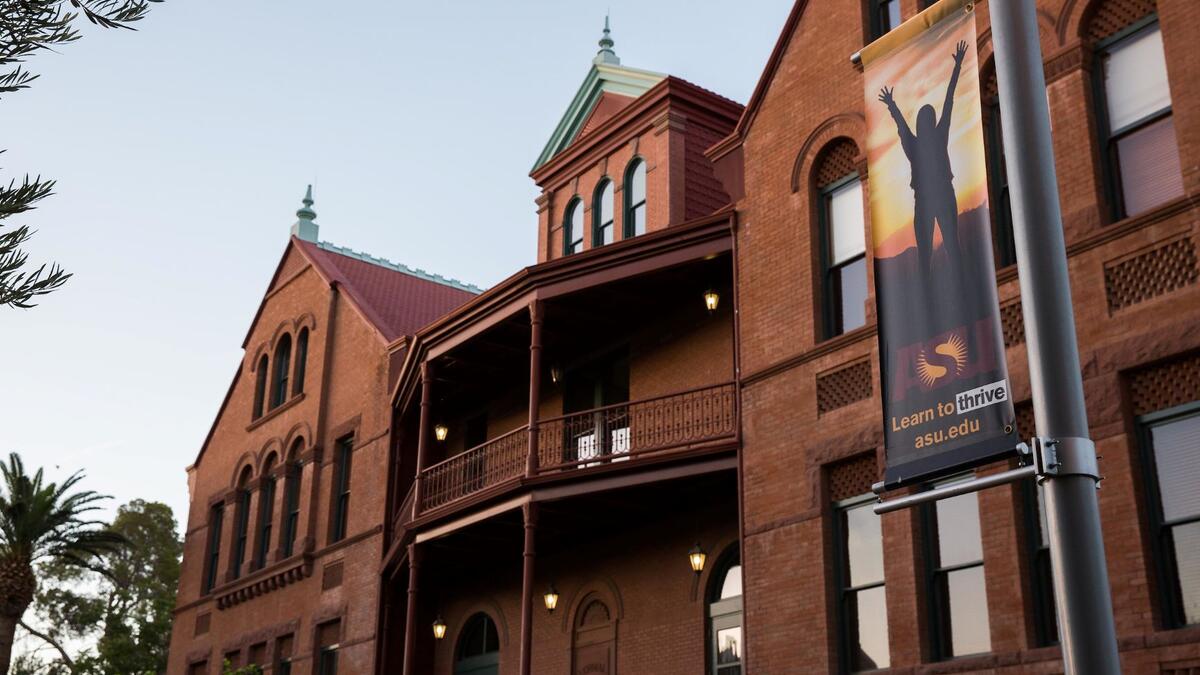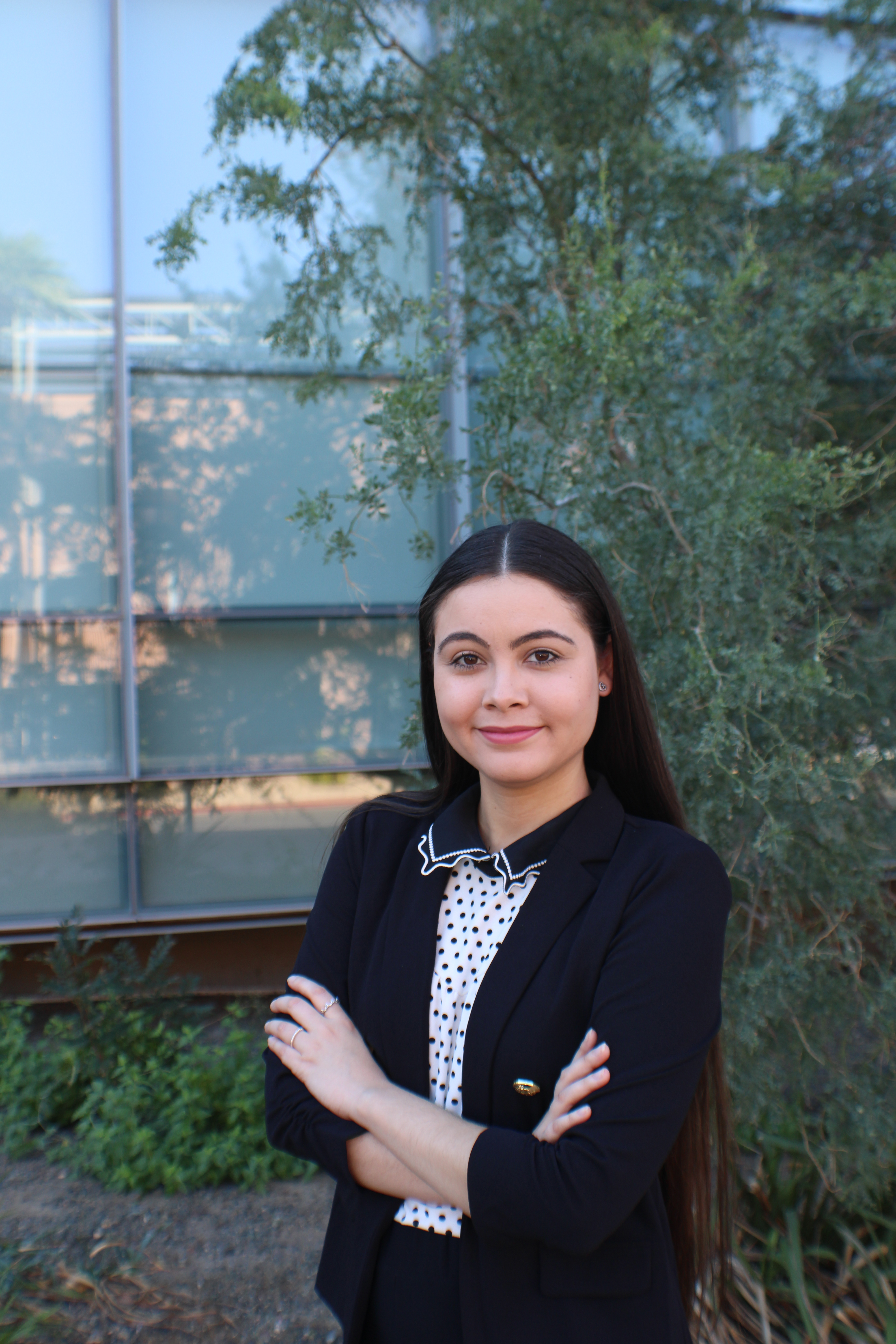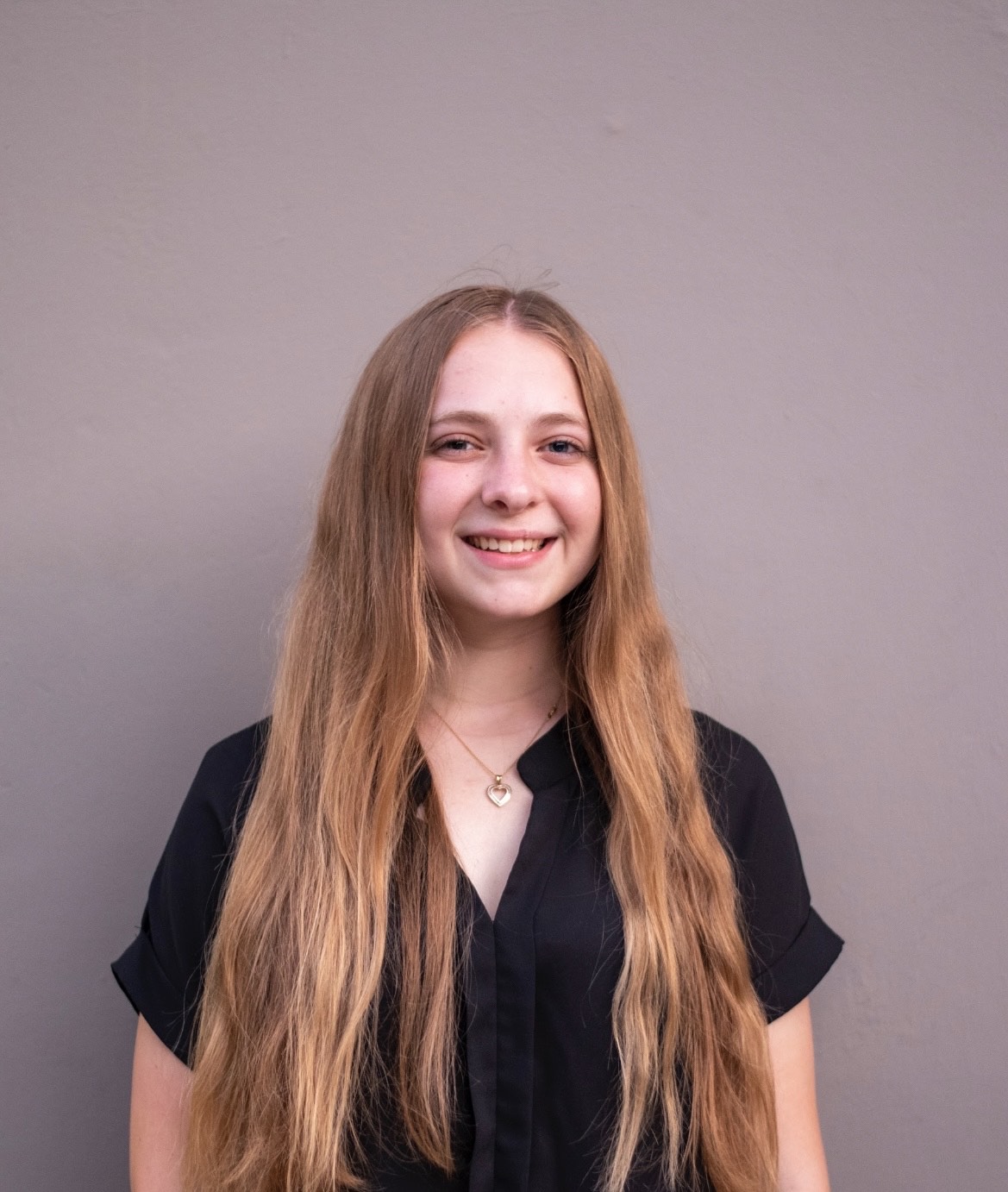Editor’s note: This story is featured in the 2022 year in review.
Two Arizona State University students are among 25 students nationally who have been awarded a Quad Fellowship, an initiative created by the United States, Australia, Japan and India to build ties among the next generation of scientists and technologists.
Samantha Harker, a first-year PhD student in neuroscience, and Xaimarie Hernandez Cruz, who is pursuing her doctorate in industrial engineering, were among the winners named in a joint announcement Friday from the White House and the other Quad governments.
“On behalf of the entire academic community, I congratulate Samantha and Xaimarie for being two of only 25 students in the United States to be named to the inaugural cohort of the Quad Fellowship,” said Nancy Gonzales, ASU executive vice president and university provost. “Their academic pursuits and research areas represent the diversity of STEM scholarship underway at ASU and reflect the university’s charter commitment to creating positive impact for the communities we serve. We are proud that Samantha and Xaimarie will represent ASU and the United States through their participation in this exciting global initiative.”
Harker said she was “in awe” at receiving the fellowship.
“I’m just really excited about the outcome and all the things that it has to offer for me and everyone else,” she said.
Hernandez Cruz called the fellow a “big honor.”
“Honestly it’s a really big accomplishment,” she said. “I’m just super happy about it.”
The Quad Fellowship, operated by the philanthropic initiative Schmidt Futures, sponsors 100 master’s and doctoral students in science, technology, engineering and mathematics. Each Quad Fellow will receive a one-time award of $50,000, which can be used for tuition, research, fees, books, room and board, and related academic expenses, such as research-related travel.
“It’s partially to help these four countries maintain a competitive edge in STEM research,” said Kyle Mox, ASU’s associate dean of National Scholarship Advisement. “The underlying premise is to promote long-term collaboration. These students are in vastly different fields and in different universities, but in the long term, they’re thinking about their role in leadership. They’re thinking about the role STEM research plays in all four countries.”
Hernandez Cruz and Harker spent six months on the application process, which included multiple interviews. Mox said a crucial part of the application was showing how their research could be used to benefit society.
“They wanted to see evidence of leadership and vision,” Mox said. “Not just people that are great at punching the numbers.”
The Quad Fellows will meet over the next year to discuss their respective research, collaborate on ideas and meet with top scientists, technologists and politicians.
Xaimarie Hernandez Cruz
“I’m really looking forward to that,” Hernandez Cruz said. “I’m interested in not only my field and my research but what other challenges are occurring. They might be similar to things we’re experiencing here in the United States. Maybe other students have found very creative solutions that we can use or we maybe we already have developed solutions that they can use. From a cross-culture perspective, that’s very appealing.”
Hernandez Cruz said her research centers on “market intelligence,” developing data-driven tools that will help predict disruptive events that threaten food availability, like the current supply chain shortage.
“We want to capture as early as possible those events so the supply chain can react faster and we don’t see product scarcity and skyrocketing prices,” she said.
Because data can be specific to certain regions, Hernandez Cruz said she’s also working on a forecasting model that would be applicable to larger areas.
“COVID really just highlighted that it’s something that needs to be addressed,” she said. “It’s really important. COVID was something that I think no person could have predicted, in terms of just the impact that it was going to have. But it also left us a lot of lessons about the supply chain and how these traditional supply chains need to be adapted to be able to react to these sort of events.”
Harker’s research is driven from her own life. She said she is on the autism spectrum and in the past probably would have been identified as having Asperger’s syndrome.
Samantha Harker
Harker’s research looks into the cognitive differences older people on the autism apectrum might have and how that may make them more likely to get Alzheimer’s disease or other neurological disorders. Harker said adults with autism are often overlooked because most people think of it as, “Oh, kids. Autism. That makes more sense.”
However, the Centers for Disease Control and Prevention recently estimated more than 5.4 million adults in the U.S. have autism spectrum disorder – more than 2% of the total population.
“It’s just a rapidly growing group,” Harker said.
Harker, who participated in the Starbucks College Achievement Plan and graduated from ASU with a bachelor's degree in English, also cited the lack of female representation in autism studies, saying there’s a three-to-one, male-to-female research bias.
“Because of that, a lot of females aren’t diagnosed,” said 18-year-old Harker, who started college when she was 14. “There needs to be a little bit of a switch in the diagnosis criteria, but the main thing is that there’s a lack of resources and research for autistic adults, and specifically for females.
“I identify under both those groups, so it’s a cause that’s really important for me. I am hoping to meet with individuals who may have a different perspective on disability advocacy and public policy because it’s different in every single one of the Quad countries.”
Mox said having two students chosen as Quad Fellows is an example of the opportunities at ASU.
“ASU is a huge university, which means that there is something here for everybody,” he said. “With that scale, it’s easy to get lost. But also with that scale, if you choose to take the initiative and reach out and get involved, there are credible resources here for students to put themselves anywhere they want to be.”
Top photo by Deanna Dent/ASU
More Science and technology

Hack like you 'meme' it
What do pepperoni pizza, cat memes and an online dojo have in common?It turns out, these are all essential elements of a great cybersecurity hacking competition.And experts at Arizona State…

ASU professor breeds new tomato variety, the 'Desert Dew'
In an era defined by climate volatility and resource scarcity, researchers are developing crops that can survive — and thrive — under pressure.One such innovation is the newly released tomato variety…

Science meets play: ASU researcher makes developmental science hands-on for families
On a Friday morning at the Edna Vihel Arts Center in Tempe, toddlers dip paint brushes into bright colors, decorating paper fish. Nearby, children chase bubbles and move to music, while…




